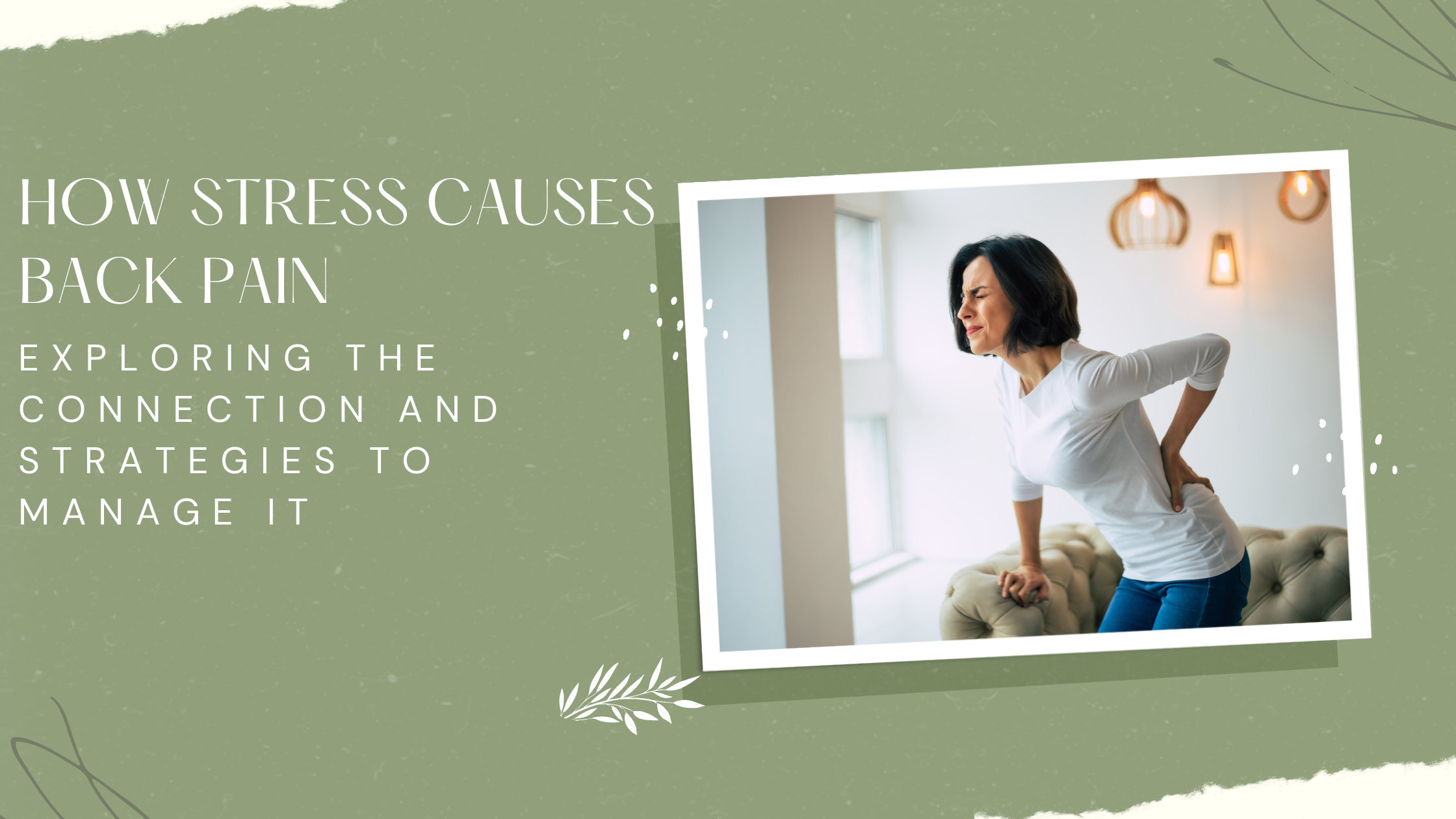How Stress Causes Back Pain: Exploring the Connection and Strategies to Manage It
Stress Cause Back Pain Uncovered: Insightful Approaches for Relief and Management
In today’s fast-paced world, stress has become an inevitable part of our lives. Stress is well known to impact our mental well-being negatively. It can also manifest in physical symptoms, such as back pain.
Understanding the connection between stress and back pain is essential for managing both conditions effectively. This article explores how stress can cause back pain and provides practical strategies for alleviating stress-induced back pain using various stress management techniques.
The Science Behind Stress and Back Pain

The relationship between stress and back pain is rooted in the body’s stress response. When we experience stress, our bodies release hormones like cortisol, adrenaline, and noradrenaline. These hormones prepare us for the “fight or flight” response, leading to physiological changes such as increased heart rate, blood pressure, and muscle tension.
Muscle tension is a key factor in stress-induced back pain. When stressed, our muscles tend to tighten, especially those in the back and neck. This tension can cause stiffness, discomfort, and pain in the affected areas. Additionally, stress can reduce blood flow to the muscles, depriving them of essential nutrients and oxygen. Reduced blood flow may lead to muscle fatigue and weakness, further exacerbating back pain.
Moreover, stress can also heighten our perception of pain. When we’re under chronic stress, our pain threshold may decrease, making us more sensitive to discomfort and pain. Consequently, even minor muscle tension or stiffness can feel more painful and debilitating when stressed.
Common Symptoms of Stress-Related Back Pain

Stress-related back pain can manifest in various ways. Some common symptoms include:
- Dull, aching pain in the lower, middle, or upper back
- Muscle stiffness and tightness, particularly in the neck, shoulders, and lower back
- Frequent headaches, which may originate from tension in the neck and upper back muscles
- Pain that worsens during periods of increased stress or emotional tension
- Pain that improves with relaxation techniques or stress reduction strategies
Stress Management Techniques for Alleviating Back Pain

Effectively managing stress is crucial for reducing stress-induced back pain. Incorporating stress management techniques into your daily routine can help alleviate mental and physical stress symptoms. Some effective stress management strategies include:
- Deep breathing exercises: Practicing slow, deep breaths can help calm the mind, relax the muscles, and reduce muscle tension in the back.
- Meditation and mindfulness practices: Mindfulness meditation, guided imagery, and progressive muscle relaxation can help lower stress levels and promote relaxation, decreasing muscle tension and back pain.
- Regular physical exercise: Engaging in regular physical activity, such as walking, swimming, or yoga, can help reduce stress, improve blood flow to the muscles, and strengthen the muscles supporting the spine, ultimately decreasing back pain.
- Seeking professional help when necessary: If stress and back pain become chronic or interfere with daily functioning, consider consulting a mental health professional, such as a psychologist or counsellor, who can provide support and guidance in managing stress effectively.
Additional Tips for Reducing Stress-Related Back Pain

In addition to stress management techniques, the following tips can help prevent and alleviate stress-related back pain:
- Maintaining good posture: Proper posture, both sitting and standing, can help reduce strain on the back muscles and minimize the risk of developing stress-related back pain.
- Practising proper ergonomics: Adjust your workstation to ensure your chair, desk, and computer monitor to correctly positioned to minimize strain on your back, neck, and shoulders.
- Stretching and strengthening exercises for the back: Incorporate targeted exercises to stretch and strengthen the back muscles, which can help reduce muscle tension and improve overall spinal health.
- Incorporating relaxation techniques into your daily routine: Make time for relaxation and self-care activities, such as taking a warm bath, reading a book, or engaging in a hobby, to help reduce stress and promote overall well-being.
Addressing stress and back pain to improve overall health and well-being is crucial. The connection between stress and back pain is undeniable, with stress causing muscle tension, reduced blood flow, and heightened pain perception. By incorporating stress management techniques, maintaining good posture and ergonomics, and engaging in regular exercise and relaxation activities, you can significantly reduce stress-induced back pain and enjoy a more balanced, pain-free life. Remember to seek professional help to manage stress and prevent chronic pain effectively.

